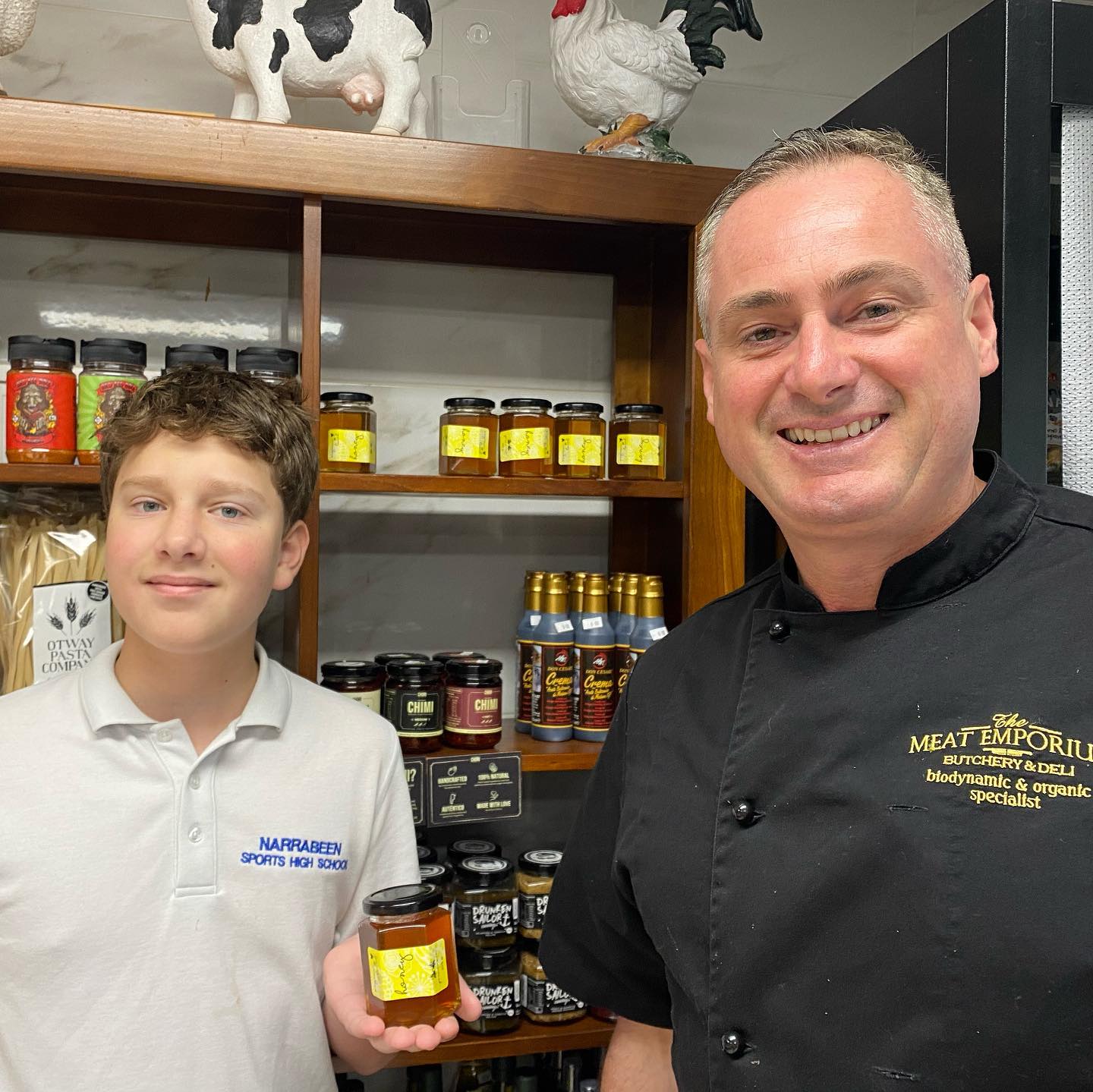May 16 - 22, 2021: Issue 494
Permanora Honey - Tom's Pure Honey From Elanora Heights
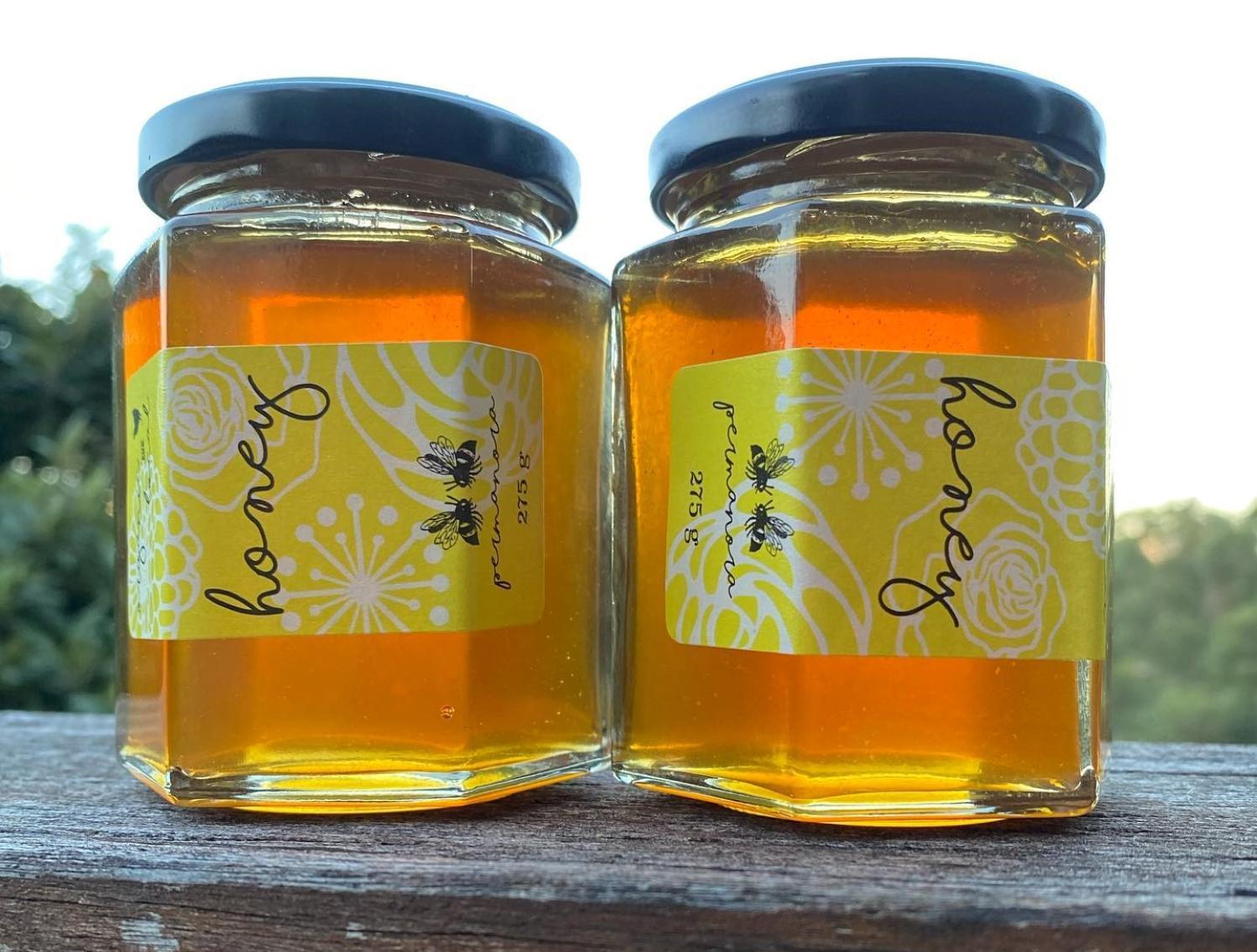
Selena has also been a proponent of native bee hives. Past features on local insects for younger readers have showcased her images of insects and among these, the bees that live in her garden. Those needing to 'split' a hive have called on her knowledge to help with the process. When you have a large, healthy hive, it is possible to create a new colony from it by making what is called a split. In basic terms a split is taking a portion of an established colony and transfer it to a separate hive thereby creating two colonies.
Native bees are a vital part of local ecosystems and maintain the health of our environment through 'naturally promoting biodiversity.
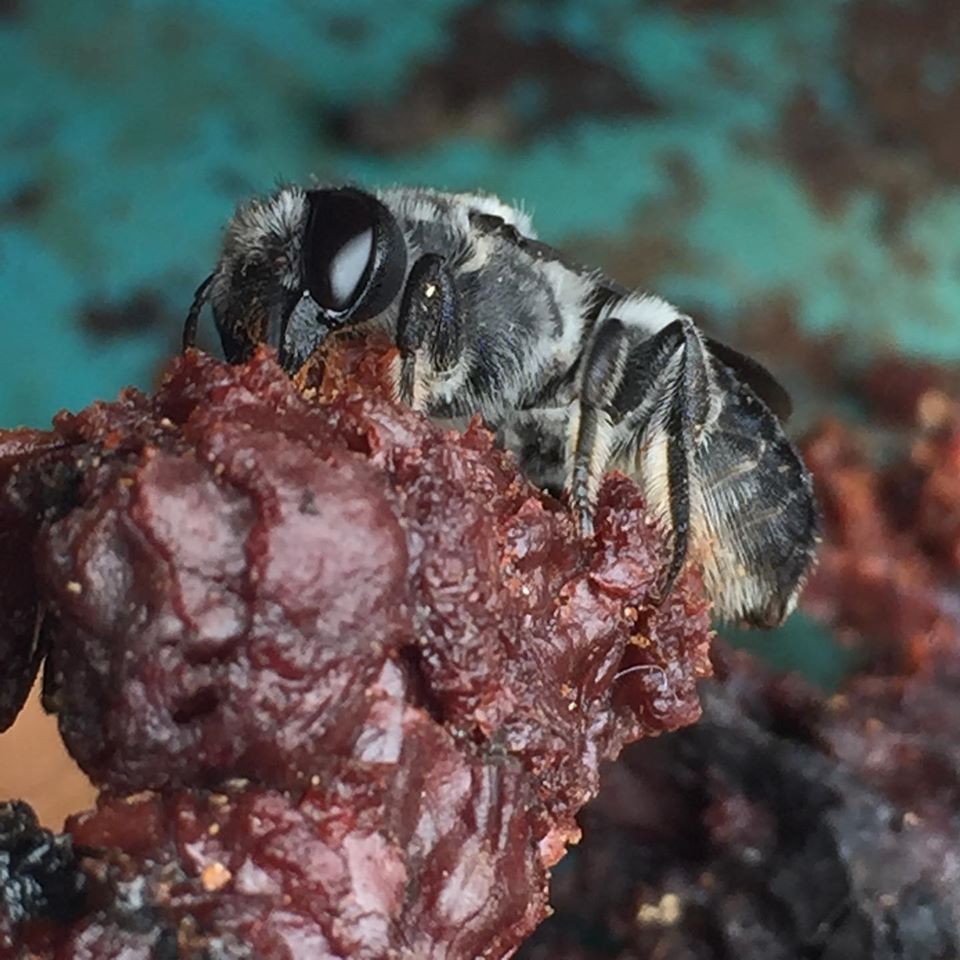
This suburban miniature 'farm' has formed part of the local permaculture community and been a feature of the Sydney Edible Garden Trail since its commencement and formed part of the Permaculture Northern Beaches branch's May 2nd 2021 annual Permaculture day as 'Permanora'.
Permaculture is a design system for creating sustainable human environments. It is about designing households and communities that are productive, sustaining and largely self reliant and have minimal impact on the environment. Permaculture Day started right here in Australia and is now celebrated all over the world.
Permanora is an evolving garden designed around the principles of Permaculture. Tucked in a quiet gully in Elanora Heights, Selena’s protection of native vegetation on the site also makes this a perfect habitat for native animals and insects. The yard is populated with resident kookaburras, and other birds including owls, fruit bats, several species of frogs, lizards and the occasional snake, and plenty of insects!
The terraced slope affords a number of garden 'rooms' each with its own character and function. Selena Griffith won Pittwater Council’s 2011 award for Sustainability in Landscaping for this garden.
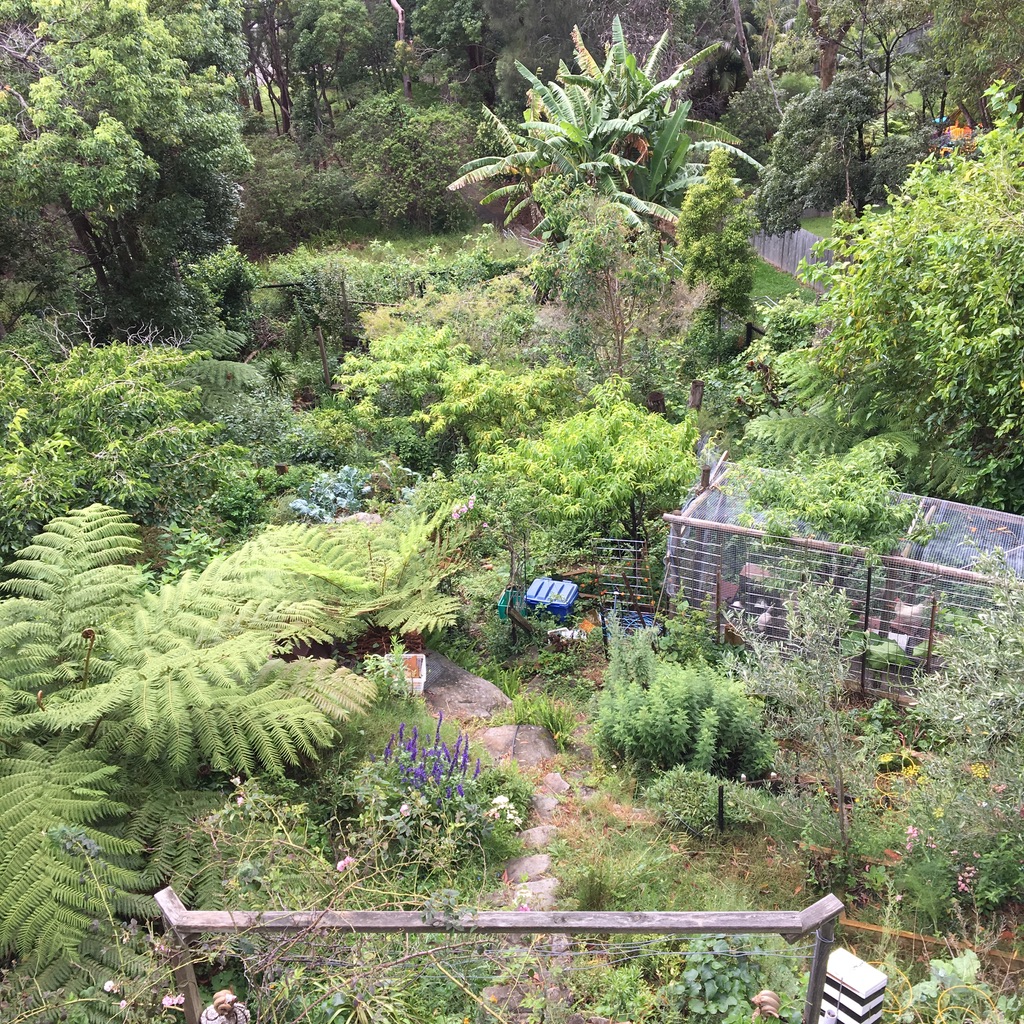
'Permanora'
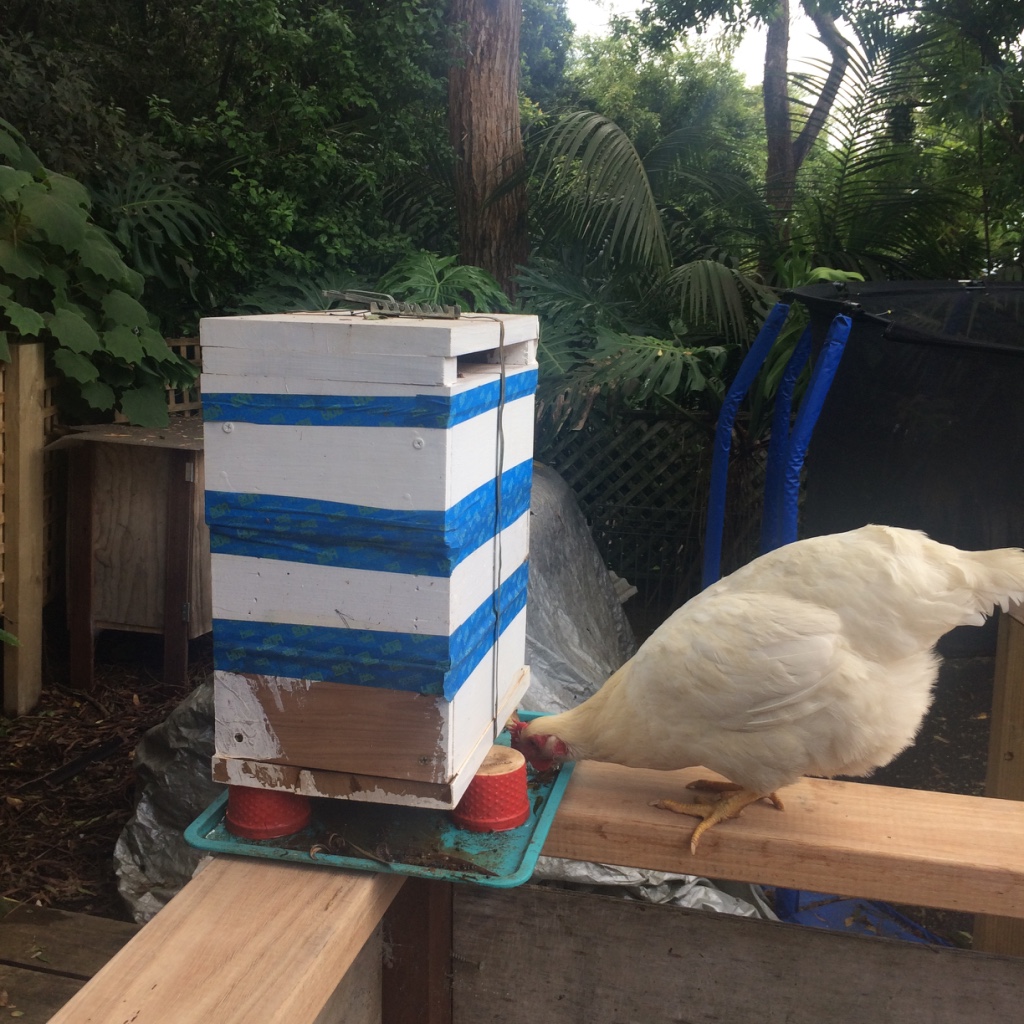
'Permanora' chook and hive
At this years' Permaculture Day some newly arrived labels for her son Tom's native bee honey allowed visitors to buy jars of this from Tom's hives with funds raised being dedicated to STEM education in Africa. Tom has also worked to earn a new bicycle.
This young entrepreneur is proof that many of our local teenagers don't expect a handout - they will create for themselves the opportunities and follow through to establish something that didn't exist prior to them making that effort.
Pittwater Online News spoke to apiarist Tom and his mum Selena this week to find out more about Permanora Honey.
Way to go Tom! Well done!!!
